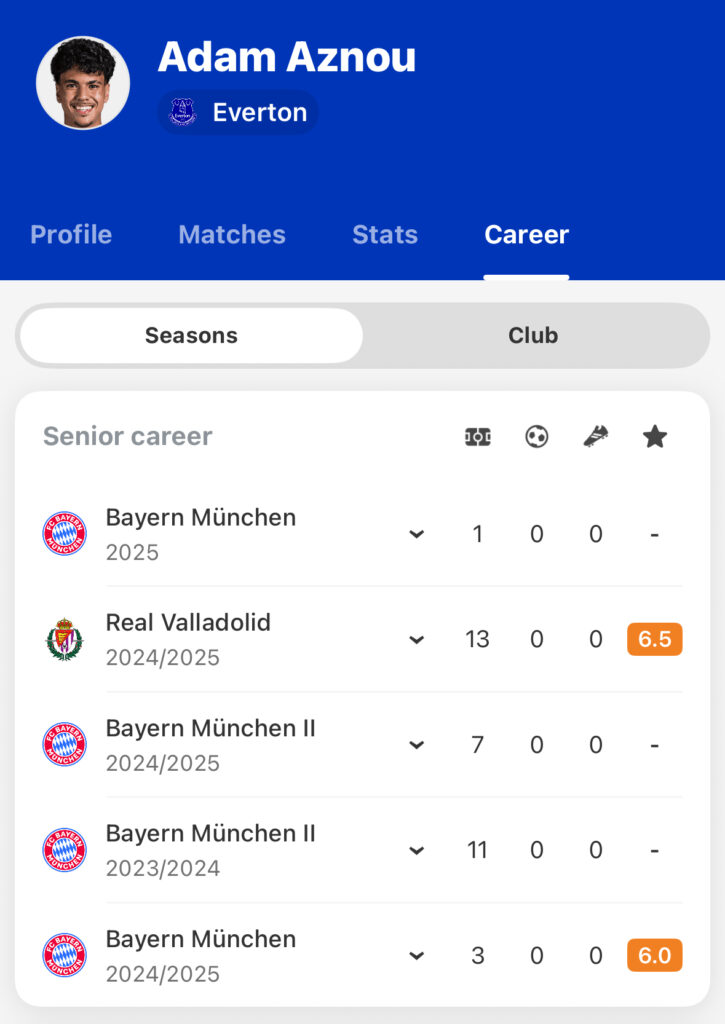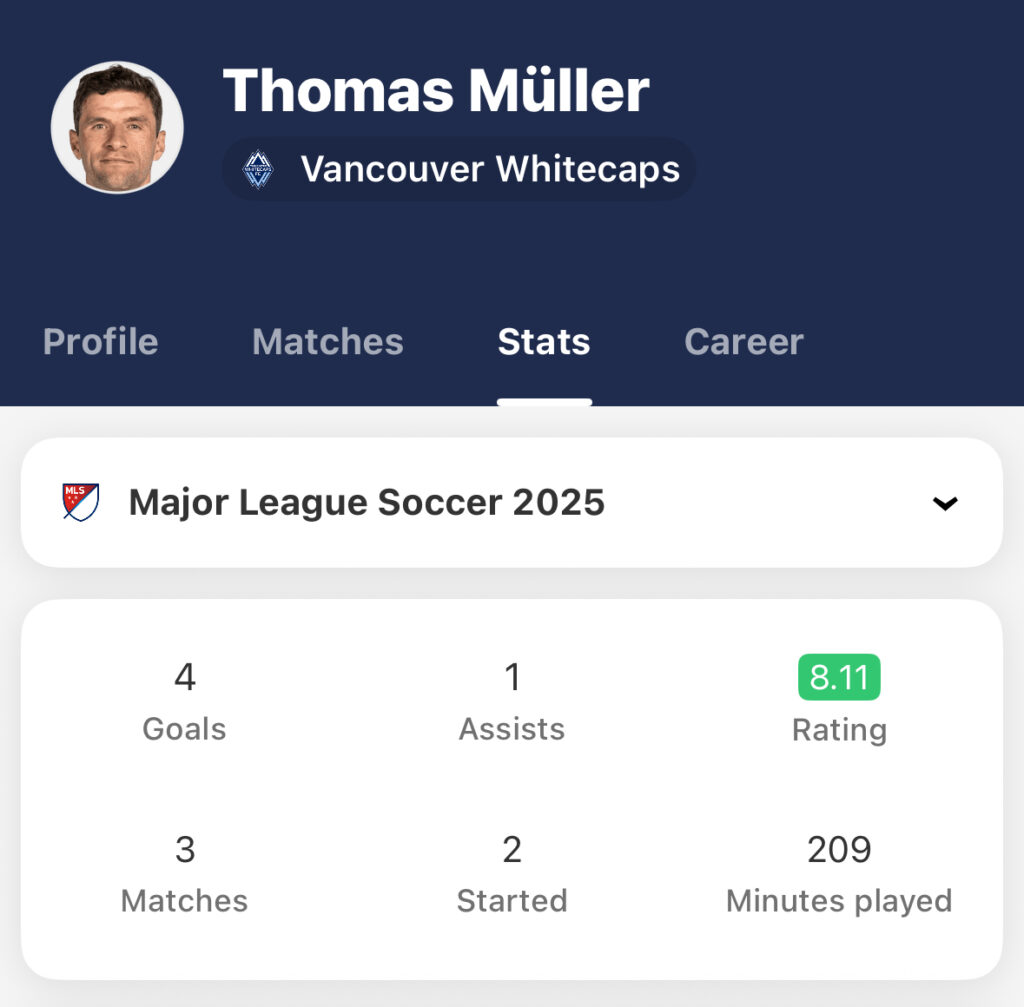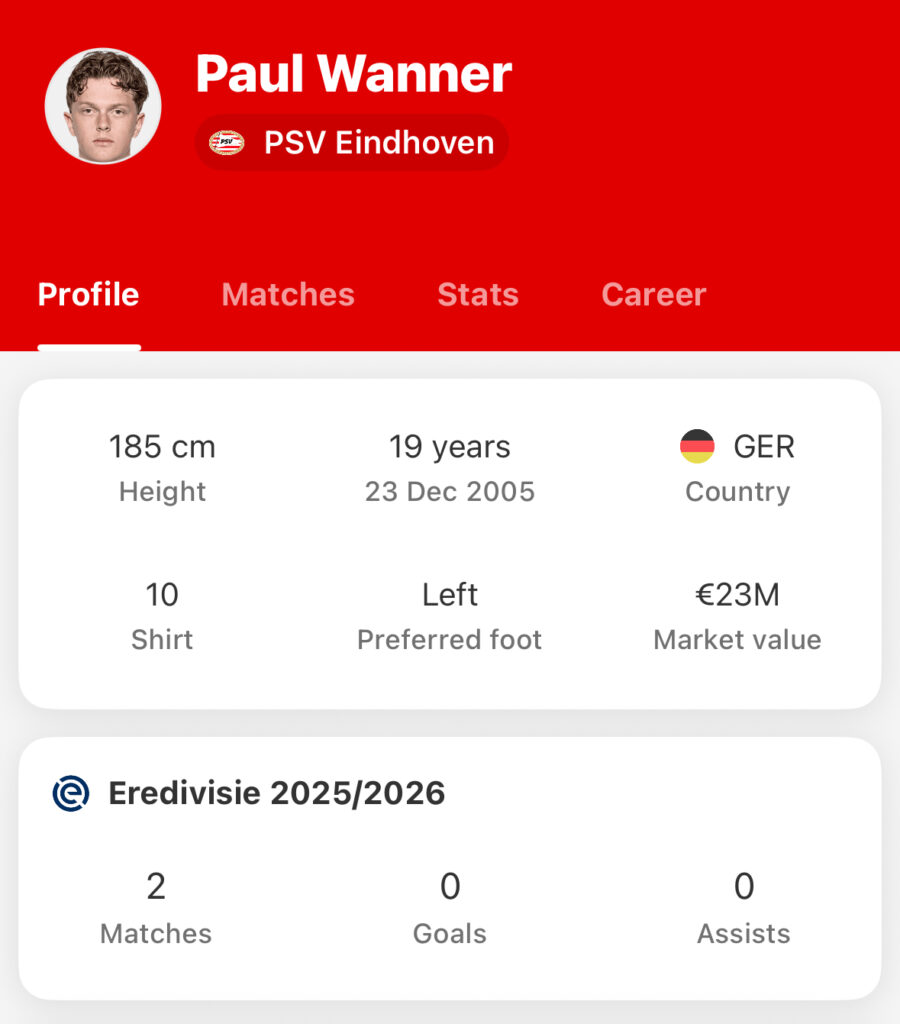Where are Bayern’s academy stars?
Bayern Munich, undisputedly Germany’s most successful club, have a proud history of producing some of the greatest talents the sport has ever seen. Franz Beckenbauer, Philipp Lahm, and Toni Kroos all rose through the ranks. In recent years, however, few academy prospects have managed to break through to the first team.
By Alex Roberts
It’s a long-standing criticism. Bayern’s dominance in Germany should allow more chances for their youngsters, yet players under 19 managed just 110 minutes across all competitions last season. By comparison, Liverpool gave 975 minutes to teenagers, PSG 966, and Real Madrid 570. Not a good look for the Bavarians.
Vincent Kompany took plenty of youngsters to the summer’s FIFA Club World Cup. Lennart Karl, Adam Aznou, Leon Klanac, Cassiano Kiala, Jonah Kusi-Asare, David Santos Daiber and Wisdom Mike all made the trip, yet they only featured for a collective 53 minutes.
One could argue that they wanted to take the tournament seriously, but they could have done so while still giving some of the younger players a chance to face Auckland FC. Instead, Serge Gnabry, Dayot Upamecano, and Jamal Musiala accounted for three of the five substitutions, with Karl and Aznou filling the remaining two.
Aznou, who had earned LaLiga experience while on loan at Real Valladolid for the second half of last season was particularly frustrated. The left-back could’ve played with the Moroccan national team but was deliberately left out so he could play for Bayern. A few weeks later, he was sold to Everton.

Following Aznou’s departure, Max Eberl, Bayern’s sporting director, said: “One can’t force a dog to hunt”, essentially laying blame on the youngster for being so impatient. But why should he be when there is very little evidence to suggest he would be given a shot?
By the time the Club World Cup had ended, Leroy Sané had gone, joining Galatasaray as a free agent. Mathys Tel, another player who spent time in Bayern’s academy, but should be considered a Rennes product, was also sold to Tottenham.
The biggest loss, however, was Thomas Müller. Arguably the last superstar to come out of Bayern’s academy was released after 756 matches played across seventeen seasons, in which he scored 250 goals and provided 223 assists.

Already in need of attacking reinforcements, Bayern’s entire transfer window was then defined by Musiala’s broken leg, picked up in the 2-0 quarter final defeat to PSG. There is a general expectation in Germany that what Bayern want, Bayern get, but that wasn’t the case this time around.
It was their most humiliating transfer window for quite some time. First, they were turned down by Florian Wirtz, who joined Liverpool for a then British record fee of £116 million, then Nico Williams, but perhaps the most telling saga of all was that of Nick Woltemade.
It’s widely known that the lanky forward wanted to join Bayern from Stuttgart, but the current Bundesliga champions were unwilling to meet the selling club’s asking price. Stuttgart, equally unwilling to budge, did something few German clubs have ever done, they stood up to Bayern.
Woltemade ultimately joined Newcastle for a reported club-record fee of £64.9 million, potentially rising to £90 million with add-ons. But that’s not just the story, it’s a sign that Bayern can no longer bully fellow Bundesliga sides into selling their best players.
They continued to scramble in the transfer market, blatantly overlooking the talent already at their disposal. Paul Wanner, an attacking midfielder, could have stepped in for Musiala, much as Musiala himself had done when he filled the void left by Philippe Coutinho after his loan from Barcelona ended in 2020–21.
Wanner was hailed as the next big thing, becoming the youngest-ever Bayern player to feature in a competitive match and the second-youngest player in Bundesliga history when he made his debut in January 2022 at just 15 years and 350 days old.
A lanky playmaker with a slight frame, Wanner relies on his remarkable close control and uncanny ability to glide across the pitch, working his way into positions where he can thread a pass or drag a defender out of position, not unlike Musiala.
Hermann Gerland, Bayern’s long-serving former academy coach, insisted that Wanner be given a chance, believing he had a ceiling comparable to Musiala’s. This was one of his final requests before leaving, but instead, Wanner was sent off to PSV.
Again, Eberl piped up, saying: “We want to believe in players and work with them who are keen to become Bayern Munich players. And that requires taking steps. And it also requires courage.” That’s hard to believe when Bayern had stripped Wanner of his number and given it to new signing Luis Díaz.
Wanner is the latest in a worrying trend for Bayern. Angelo Stiller, Joshua Zirkzee, Kenan Yıldız all spent time at Bayern’s academy before deciding to leave in pursuit of playing time, going on to play at the highest level.

It’s impossible to say whether Stiller and Yıldız in particular would have become first-team players at Bayern should they have stayed, but it goes to show what can happen when youngsters are given a chance. If Bayern wanted to sign them back now, it would likely cost them a combined fee of well over £100 million.
Kompany handed Lennart Karl his first Bundesliga start in the 4-1 win over Hoffenheim on Saturday (September 20) and the young winger provided the assist for Harry Kane’s opener just before half time with a low ball to the near post that found the Englishman expertly.
Now that other sides in Germany are starting to realise they can get more bang for their buck selling to Premier League sides rather than Bayern, the Bavarians risk being left behind by Europe’s elite if they don’t start embracing their academy more.
(Cover image from IMAGO)
You can follow every game from the Bundesliga on FotMob in the 2025 season – with in-depth stat coverage, xG, and player ratings. Download the free app here.